The player answered “Two”, which was immediately confirmed as “Correct Answer”, and the two words marked “misspelled” were “book” and “brick”.
"Brick" is wrong, but "book out" needs to be reviewed.
First, let's look at the dictionary to see what is similar and different about "book" and "lottery".
- Dai Nam Quoc Am Tu Vi (Huynh Tinh Paulus Cua) explains “so” as “to happen, to kick out, to burst out”, and lists “so ra” = “to kick out the string, to happen”; “so day” = “to kick out the string”; “so long” = “to fall out of the string”.
“Sở ra” means “kick the rope”. So what is “kick the rope”? Vietnamese dictionary (Le Van Duc) explains “kick the rope” as “Slip the rope” (meaning the rope slips off) and gives the example “The bucket kicked the rope and fell into the well, the horse kicked the rope and ran away”.
With the word “xổ ra”, Đại Nam quoc am tu vi explains it as “đở ra, bịt ra; thao ra; xuat đi; khoan đi”, and gives an example of “xổ sung” = “bân sung” (thus we see that xo is synonymous with xuat); “xổ tranh” = “giửi đào”. As for the word “xổ ra”, this dictionary does not explain it but notes it as “id” (rarely used).
What do we notice in the way Dai Nam Quoc Am Tu Vi teaches?
That is, "sở" is used for the case of slipping off, coming loose, coming loose naturally, unintentionally; and "xổ" is to take off, leave off, take off actively.
The Vietnamese Dictionary (Hoi Khai Tri Tien Duc - 1931), published 35 years after Dai Nam Quoc Am Tu Diary, recorded similarly, when writing "so" meaning "To come out, to escape from a place that must be kept, a place that must be locked up", and giving the example "So knot lat. Bird escaped from cage. Chicken escaped from coop. Newly released child"; and "xo", meaning "To open, to remove, to come out", for example "Xo sail. Xo so. Thuoc lat. Newly released child. Xo lat".
What about modern Vietnamese?
The Vietnamese Dictionary (Hoang Phe, editor-in-chief, Institute of Linguistics edition) explains “so” as “To slip out or loosen something that has been braided or tied”, and gives the example “To loosen hair and tie it up. To loosen fur...”. Accordingly, “so” is used for both passive states (to slip out, to loosen) and active states (to loosen). As for “xổ”, this dictionary limits it to the meaning of “to open, loosen to loosen something that is tied” (actively to loosen).
The Vietnamese dictionary (Hoang Phe, Vietlex version) explains “so” as “to come loose [referring to something that has been sewn, tied, braided, etc.]”, and gives the example “the hem of the pants came loose ~ the seam came loose ~ the hair came loose to comb”; the entry “xổ” explains: “to open up, to tear apart [something that is being folded, tied]”, and gives the example “the loincloth came loose ~ “Nga pursed her lips, gritted her teeth, then let her hair down, to tie it up again”. (Nguyen Cong Hoan)”.
Thus, Hoang Phe’s dictionary (Vietlex version) still distinguishes between the meaning of “so” (passive) and “xổ” (active), similar to Dai Nam Quoc Am Tu Vi and Viet Nam Tu Dien. However, in the example section, this dictionary gives the text “so toi ra choi” and “xổ toi ra, de van lai”. So “so” and “xổ” become two synonyms, or are considered “ambiguous” cases in terms of spelling.
Further examination of the Great Vietnamese Dictionary (Nguyen Nhu Y, editor-in-chief). This book has a similar explanation to the Hoang Phe Dictionary (Institute of Languages edition), when giving “so” the meaning “to slip off or loosen something that has been braided or tied”, and giving the example “a knot is loosened <> a scarf is loosened <> hair is loosened and tied <> a cloth with loose hair”. In the entry “so”, the explanation is “to open, loosen what is being tied or covered: to loosen hair”.
So, if applied to the situation of "the foster mother", is "so ra" or "xô ra" the correct spelling?
We have to consider more about the material. The sentence “The button just popped out…”, is quoted from the short story “The Ghost Coin” by Nguyen Cong Hoan. Summary:
One morning, “Nuoi’s mother” went to the court to report that all her property had been stolen. To be allowed to appear before the mandarin, Nuoi’s mother had to bribe the soldier two cents, but she did not report it. Nuoi’s mother took a risk and went to see the district magistrate Hinh, but was threatened and pressured by the mandarin, making “her” extremely scared. “She stood by the table, trembling. She glanced at the mandarin. He was so majestic. She was even more scared. But whether she was trembling or scared, she could not forget the matter of defaming the mandarin. But the money she had to present to the mandarin, she had tied inside her bodice. She had to take it off to get it.
He was just fumbling to untie the knot. He was afraid that the mandarin would wait too long, so he had to hurry. But because he was in a hurry, and also worried that the mandarin would be angry, he was clumsy. As soon as the knot was untied, it clanged, and the whole amount of money fell onto the bricks"...
As above, “the mother” “pulled out the knot” (completely proactively) but because of “fumbling”, the knot “came loose” (unintentionally) causing “the whole amount of money to fall onto the floor”.
Thus, writing “the button just popped out” would be more accurate (because it describes a passive situation). However, considering the development and change of Vietnamese from the late 19th century, early 20th century, to modern times, “so ra” and “xô ra” are “dual possibilities”, meaning both are accepted.
Hoang Trinh Son (Contributor)
Source: https://baothanhhoa.vn/xo-ra-va-so-ra-256967.htm


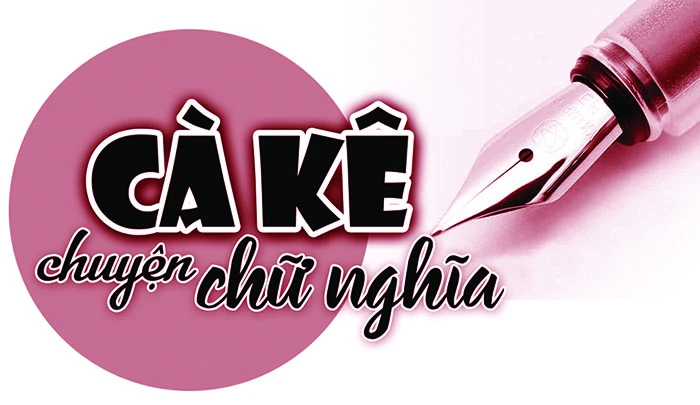
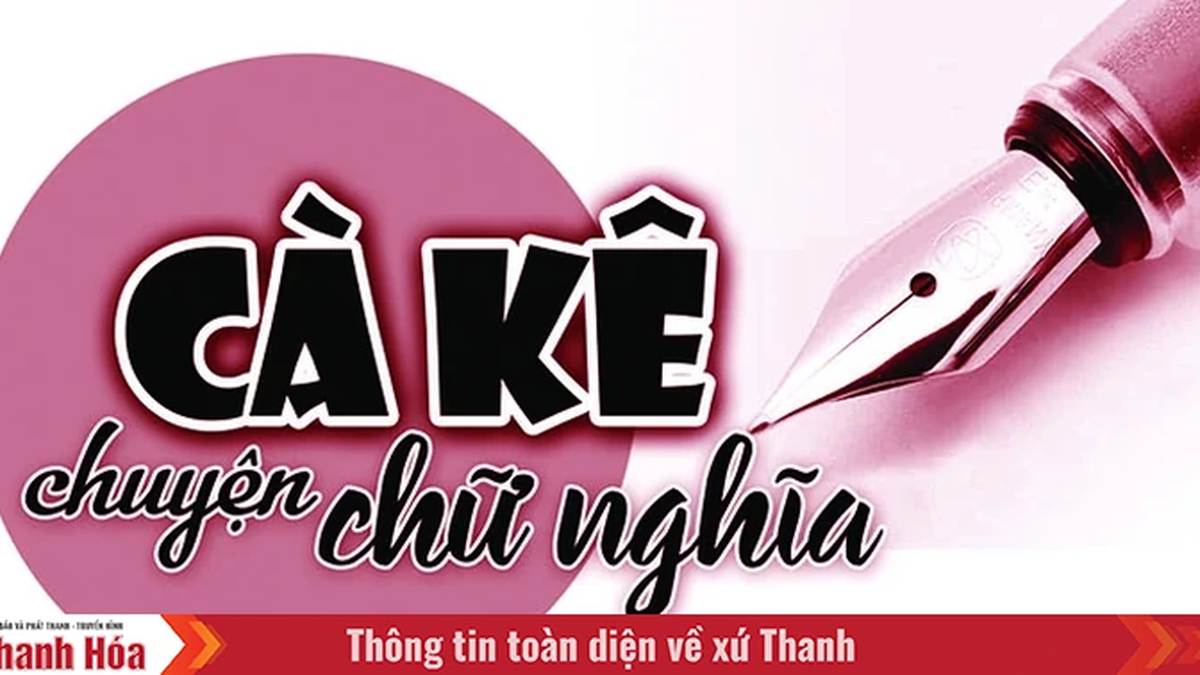




















































![[Maritime News] Two Evergreen ships in a row: More than 50 containers fell into the sea](https://vphoto.vietnam.vn/thumb/402x226/vietnam/resource/IMAGE/2025/8/4/7c4aab5ced9d4b0e893092ffc2be8327)


















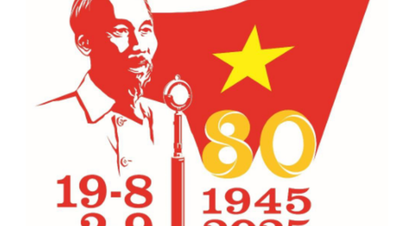


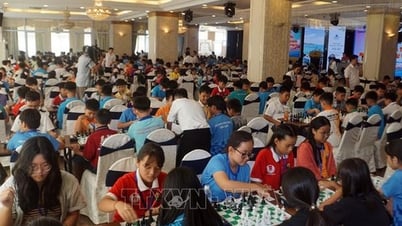


















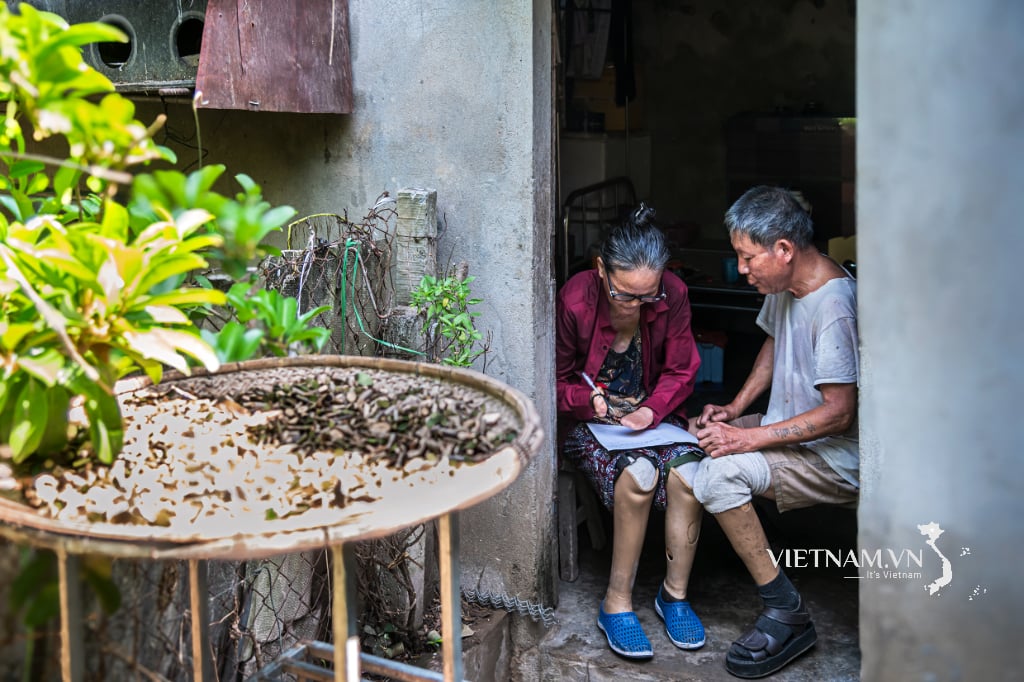


Comment (0)